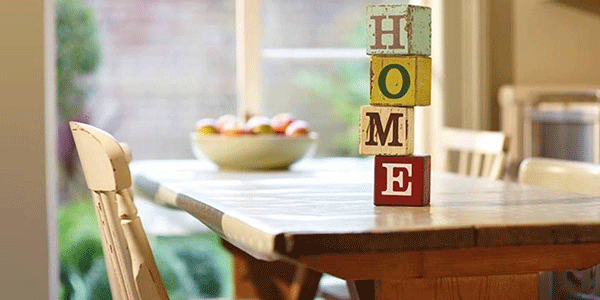Home Loan Mistakes to Avoid
If you’re considering buying or building a home then you’ll probably need a home loan. We’ve listed here the 21 most common home loan mistakes we see when it comes to managing your home loan. Learning from others’ will give you the best chance of getting financially ahead!
Buying or building is a tricky business and advice can come from all the wrong places at all the wrong times. As the market is constantly changing and evolving, correct information is hard to come by.
That’s why we’ve compiled some up-to-date accurate information for you to make informed decisions, that won’t come back to bite you on the bum.
Fill out the form below to download a copy of our ’21 Critical Home Loan Mistakes to Avoid’ or keep reading to find out what you need to be doing!
Phase: Research and Preparation
1. Waiting to Save a 20% Deposit
The greater your deposit the better, however, it’s not always realistic to set yourself a 20% deposit goal.
It can take you a long time to save for a deposit, especially if you’re paying rent at the same time.
Instead, you should aim to save 5% of the purchase price as your deposit.
Even though it feels safer to wait, consider how much you will have to pay in rent and how property prices could increase over time while you’re waiting to save that extra 15%.
2. Not Viewing Enough Properties Before You Make an Offer
When you consider that a home costs hundreds of thousands of dollars, it makes sense that you should shop around and really explore your options before choosing something.
If you’ve viewed five properties in an area and found one you really love, it’s likely that if you look at 10, 20 or even 30 additional properties, you’ll find even more homes you adore.
Don’t settle for the first thing that catches your eye, investigate different possibilities.
3. Not Sticking to a Weekly Budget
Whether or not you have a mortgage yet, do you know where your money is going each week?
Are you on a budget or always overspending? Or worse, do you have no idea how much you spend on groceries, eating out etc?
If you don’t have a clear plan and know where your money is going it will be hard to get ahead with your savings.
We love using apps to keep track of our budgets and it’s something a lot of our clients have come to love as well. Try youneedabudget.com for keeping track.
4. Placing too Much Trust in the Real Estate Agent
A Real Estate Agent is hired and paid for by the seller. They work for the seller and their goal is to get the property sold, so it stands to reason they won’t always have your best interests at heart.
We recommend doing your own research, using tools such as property reports which you can source yourself or ask your mortgage broker to help you acquire them.
You need to be careful that you don’t believe everything the real estate agent tells you without checking the facts for yourself.
Also, avoid telling the agent if you’ve fallen in love with the house, this may end up costing you (financially speaking) as they can use your emotional attachment as a bargaining chip.
5. Not Knowing If / How Much You Can Borrow
Sort out your finances before you start looking seriously at houses. Since May 2015, lenders have made it much harder to borrow money.
As a result, you need a higher deposit and more income to borrow the same amount of money than you would have prior to the May 2015 changes.
Ensure you get a proper pre-approval so you can plan and make smarter decisions when the time comes.
6. Buying Because of FOMO (Fear Of Missing Out)
Not only do property markets move in cycles but most capital cities and regional areas are their own micro market.
It takes a strong person to avoid buying at the peak of the market and overpaying, but it’s a wise move.
On the other hand, waiting for the “right time” is like gambling with your future, so you’ll need to assess what’s right for you when the time comes.
7. Not Viewing the Property in Person
Property photos are similar to online dating profiles – it’s easy to look enticing in a selfie, with perfect lighting and a face full of makeup (maybe even a little bit of Photoshop chucked in).
But in the harsh light of day, we all see the truth.
Unfortunately, when it comes to buying a home you can’t just escape through the bathroom like when your Tinder date goes sour.
Avoid the risk and make sure you meet your new home in person before taking the plunge.
8. Only Viewing the Property Once at Open Inspection with the Crowds
If the property catches your eye, come back with a checklist and go over the finer details.
You want to be confident in what the house is worth and that it’s right for you.
9. Listening to Well Meaning Friends and Family Who Aren’t Sufficiently Experienced
We’ve found that as soon as our clients mention they’re buying a home or investment property they get told all sorts of ‘free’ well meaning advice.
We often find that this advice is either outdated (as lending rules constantly change), misguided, or simply incorrect.
Phase: Making An Offer
10. Overpaying for a Home – You Make Your Money When You Buy
Property veterans will often tell you this is the number one rule of buying property, just as important (if not more so) than position, position, position.
In our experience, even when you’re buying a family home you hope to live in for a long time it makes sense to ensure you’re buying it for a good price.
11. Not Showing Up in Person to the Building and Pest Inspection
These guys work for you and there are so many more things they can show you if you’re there in person that will hit home better than any written report.
You may be able to negotiate a lower price (e.g. $1,000 to upwards of $10,000 off the property) if there are issues with the house.
It will also give you a better understanding of what to look out for in the future.
12. Not Having the Right Protection Clauses in Contract of Sale
Ask for 21 days on the finance and don’t be fooled by agents who say you can always make changes later.
We recommend forwarding the unsigned contract to your solicitor before to make sure that you understand what you’re signing.
It’s good practice to always have a legal professional proofread important documents before you sign to ensure your interests are protected.
Phase: Getting A Home Loan
13. Choosing a Home Loan Based on Interest Rate Alone
We know, interest rates are what banks advertise the most and it’s the simplest piece of information to find but there’s so much more to doing a home loan right.
For example, lenders mortgage insurance, offset account(s), ongoing fee’s and flexibility to be able to change repayments in the future are all important aspects of a home loan.
These factors can be just as important, if not more so when choosing a home loan
14. Underestimating the Costs of Buying a Home
Often, there are expenses that need to be paid for in cash before you buy a home.
Such expenses include:
- Building and pest reports;
- Application fees;
- Solicitor fees;
- Stamp duty;
- Lenders mortgage insurance (LMI);
- Transfer fees;
- Council fees.
Your mortgage broker or solicitor can advise you on the specifics of these and whether they apply to
you, but just be wary that there can be significant upfront costs when buying a home.
15. Going Direct to the Bank for Your Home Loan (Yes it Sounds Biased, But
Hear Us Out)
Banks are only interested in selling their own home loans.
Just because you have been with the bank for 10 years, doesn’t mean they’ll look after you.
It’s a good idea to see a mortgage broker instead as they have access to up to 40 lenders and hundreds of home loans, so you can be sure they are providing you with the best options.
A good mortgage broker will take the time to explain in detail exactly how you can make the best use of your home loan, which the big banks won’t do.
16. Your Loan Ignores How Your Life Style May Change Over the Next Few
Years
Your bank manager or mortgage broker should take the time to understand how your lifestyle may change and what goals you have over the coming years.
Are you planning to start or grow a family, buy a new car, take an expensive holiday, or buy an investment property?
If you are these will all affect your weekly income and expenses.
You may want to use the equity in your home for some reason, in which case you will need a loan that is set up for this purpose.

Phase: Managing Your Home Loan
17. Not Putting Extra Money into Your Offset Account/s
Resist the urge to have separate ‘rainy day’ savings accounts here and there.
Instead, store all of your savings in your offset account, this will reduce your interest repayments to the bank.
This method will save you more money in the long run and you can still access your cash when needed.
18. Not Using the Falling Interest Rates to Pay-Off More of Your Home Loan
Keep your repayments ahead of schedule.
This will build a solid buffer in case you need it for protection in the future.
On a $400,000 home loan a 0.25 percent drop in your interest rate means you are contributing an extra $1,000 per year to paying off your loan.
19. Using the Equity in Your Home to Buy an Expensive New Car
Cars are necessary and expensive, but be conscious of how much a $30,000 plus car loan will chew up your weekly cash flow.
It would be better to get something more economical and pay $80 per week instead of $200 per week in repayments.
You could then put the rest of the money towards an investment property that will actually go up in value over time.
20. Losing Savings Momentum as You Near Your Next Investment
Saving up a deposit for your first home requires focus and discipline.
Once you are all settled in try to maintain some of that focus and discipline.
After all, it’s not about how much you make it’s about how well you save it.
21. Not Considering Refinancing a Few Years into Your Loan
It’s best to review your home loan around every 18 months or 2 years to ensure it still meets your needs.
You should consider refinancing:
- Market conditions have changed, for example, an interest rate change;
- Your personal circumstances have changed, for example, your income has changed or you want to access the equity in your home to buy an investment property.
![]()






